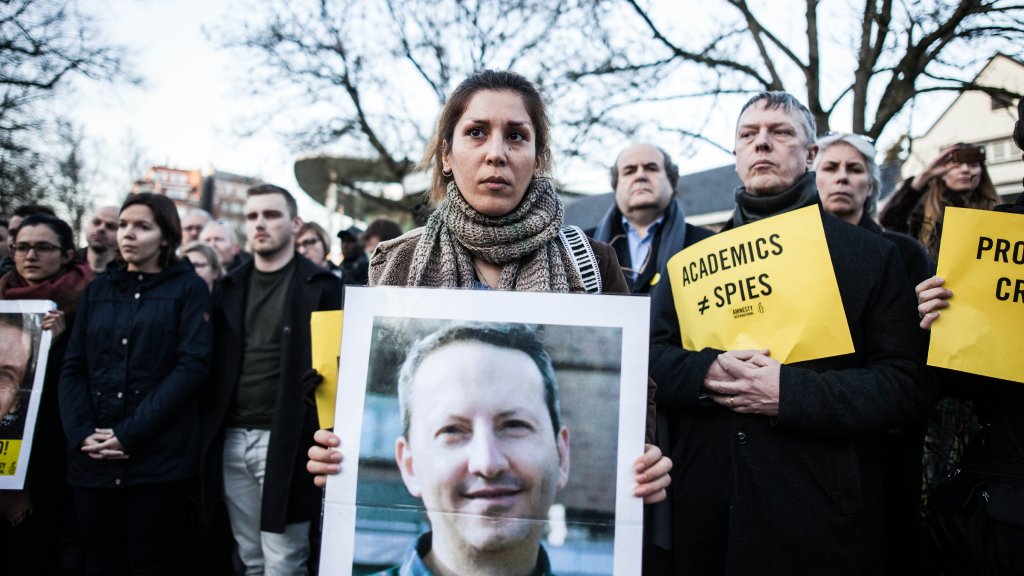The Iranian-Swedish professor Ahmadreza Djalali, the VUB guest lecturer who has been detained on false charges in Iran since 2016, said in a recent audio recording that the nine years he has spent in captivity have brought him to a "breaking point."
Djalali, a scientist and academic, has been imprisoned in Iran for nine years now. He was arrested and charged with espionage during a working visit to the country in April 2016. He was sentenced to death a year later, but that execution has not been carried out.
He is being held in the notorious Evin prison in Tehran. On Thursday, Djalali's wife, Vida Mehrannia, played the message in the House of Representatives Foreign Affairs Committee.
In the audio message, Djalali pointed out the repeated calls for his release. "European and Swedish officials were asked to take strong action for my release. Unfortunately, nothing effective has been done yet, which makes me believe that European and Swedish officials do not care about my life and the calls from the UN, the EU and human rights organisations."
Used as a bargaining chip
He spoke of "psychological torture" of himself and his family when he was put in solitary confinement for five months in November 2020, awaiting execution. "The aim of this cruelty was to increase pressure on the Belgian government during the trial of [the eventually convicted terrorist] Assadi in Belgium."
Something similar happened in May 2022, when Hamid Nouri – a former Iranian prison officer found guilty of involvement in the mass executions of Iranian political prisoners in 1988 – was being tried in Stockholm.
"I was used as a bargaining chip, but cruelly and arbitrarily abandoned in the exchange of Assadi and Nouri with Belgian and Swedish prisoners in Iran," he said.

Credit: Belga/Virginie Lefour
"Nine years in such inhumane conditions have led to various health problems, such as heart failure, gastritis and intestinal disorders, gallstones, severe weight loss, poor eyesight, severe and persistent headaches, loss of teeth, skin problems and general weakness," Djalali said.
"I am at a breaking point. Already 3,288 days of suffering and risk of execution show the ineffectiveness of words and condemnations."
Djalali called for joint action by European and Swedish officials. If nothing is done and he dies in prison in Iran, the officials who remain aloof will also be "responsible for his death," he said.

